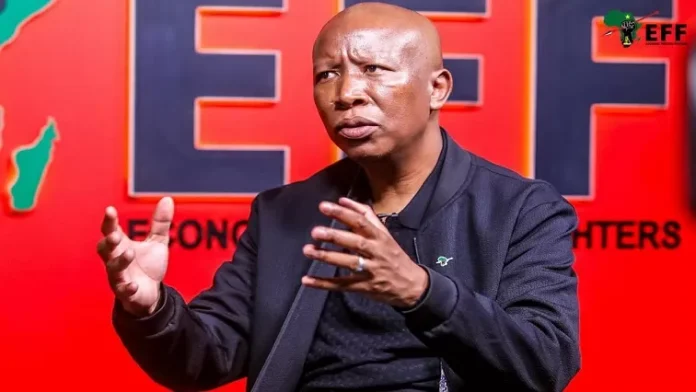In recent years, the call for black unity has become increasingly prevalent in South Africa. Many have argued that in order to truly achieve equality and overcome the legacy of apartheid, black people must come together and unite as one. However, there are differing opinions on how this unity should be achieved. Some believe that forming separate political parties is the way to go, while others argue that joining a single party is the key to success. One such voice is that of the leader of the Economic Freedom Fighters (EFF), Julius Malema, who has stated that those calling for black unity should have joined his party instead of forming other parties.
Malema’s statement has sparked a heated debate among South Africans, with some agreeing with his sentiment and others vehemently opposing it. However, it is important to understand the context in which this statement was made. The EFF is a relatively new political party, formed in 2013, with a strong focus on economic and social justice for the black majority. The party has gained significant support, especially among the youth, and has become a force to be reckoned with in South African politics.
Malema’s statement can be seen as a call to action for those who truly believe in the idea of black unity. He argues that instead of forming separate parties, which can often lead to division and dilution of the black vote, those who are passionate about this cause should have joined the EFF. This would have not only strengthened the party but also united the black community under one political banner.
Furthermore, Malema’s statement highlights the importance of having a strong and united front in the fight against the injustices faced by black people in South Africa. The country is still plagued by high levels of poverty, unemployment, and inequality, which disproportionately affect the black population. In order to effectively address these issues, it is crucial for black people to stand together and demand change as a united force.
Joining the EFF, or any other party that shares similar values, would have also provided a platform for individuals to actively participate in the political process and contribute to the fight for black liberation. By joining forces, the black community would have a stronger voice and be able to hold those in power accountable for their actions.
Moreover, Malema’s statement serves as a reminder that the struggle for black unity is not just a political one, but also a social and economic one. The EFF’s policies and actions have consistently shown a commitment to uplifting the black community and addressing the systemic inequalities that still exist in South Africa. By joining the party, individuals would not only be contributing to the political landscape but also actively working towards a better future for all black South Africans.
It is also worth noting that Malema’s statement is not meant to discredit or discourage the formation of other political parties. In a democratic society, individuals have the right to form and support any party they choose. However, in the context of the call for black unity, Malema’s argument holds weight. Instead of fragmenting the black vote, joining a single party with a strong focus on black empowerment would have a more significant impact and bring about real change.
In conclusion, Malema’s statement may have caused some controversy, but it also serves as a wake-up call for those who are truly committed to the idea of black unity. Instead of forming separate parties, joining the EFF or any other party with a similar vision would have been a more effective way to achieve this goal. The fight for black liberation is far from over, and it is only through unity and collective action that we can truly overcome the challenges that still face us as a nation. Let us heed Malema’s call and work towards a united and prosperous future for all black South Africans.

